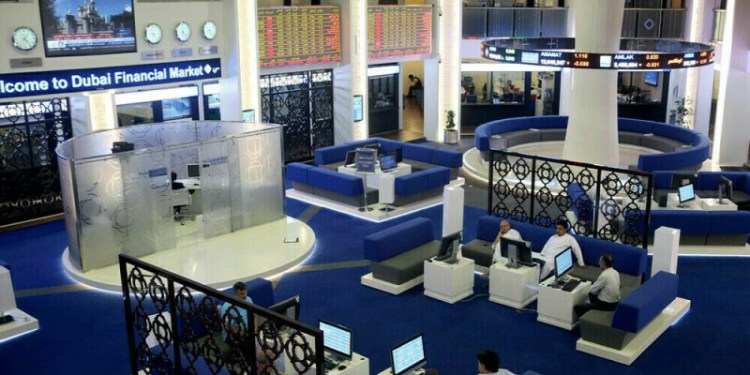LONDON: Oil prices fell sharply and government bond yields rose on Monday on the view that this weekend’s U.S.-led missile strikes on Syria were unlikely to mark the start of a broader conflict.
Saturday’s strikes marked the biggest intervention by Western countries against Syrian President Bashar al-Assad and his ally Russia, which is facing further economic sanctions over its role in the conflict.
“There is a feeling (in the market) that there will be no follow-up action,” Rabobank fixed income analyst Lyn Graham-Taylor said.
European shares eased, however, adding to a mixed picture from Asian stock markets and suggesting that a degree of caution prevails.
While last week’s bid for investment safety in top-rated government bonds unwound, other traditional safe-haven bets held firmer. Gold prices were little changed, while Japan’s yen and the Swiss franc were higher than levels seen late on Friday.
European and U.S. government bond yields, which move inversely to prices, rose across the board. That was partly as attention turned to what is expected to be a robust first-quarter U.S. corporate earnings season, which begins in earnest this week.
The yield on both German and U.S. 10-year government bonds, seen as among the most liquid and safe assets in the world, were at their highest levels for three weeks.
Oil prices, meanwhile, dropped sharply. Brent crude fell more than 1 percent to $71.78 a barrel, with a rise in U.S. drilling for new production also dragging on prices.
MSCI’s world equity index, which tracks shares in 47 countries, was flat on the day and a benchmark pan-European stock index was marginally lower.
U.S. stock futures were pointing to a higher opening on Wall Street, with Dow and S&P Futures up 0.6 percent each and Nasdaq futures up 0.7 percent.
First quarter earnings for U.S. companies will be very important after February’s sell-off, Lombard Odier Investment Managers chief investment strategist Salman Ahmed said.
“If there is a genuine dent in earnings, people will sit up and take notice,” he said, noting that regulation will be a powerful driver for the technology sector, citing the example of Facebook, as well as the banking industry.
EYEING ABE
The dollar failed to hold its early gains on the yen and eased to 107.27, though that was still up on last week’s low around 106.62.
Dealers were keeping a wary eye on Japanese politics after a survey showed support for Prime Minister Shinzo Abe had fallen to 26.7 percent, the lowest since he took office in late 2012.
Abe’s sliding ratings are raising doubts about whether he can win a third three-year term as ruling Liberal Democratic Party leader in a September vote, or if he might even resign before the party election.
“For markets, the question is whether this matters for economic policy,” UBS Wealth Management global chief economist Paul Donovan said. “A change in leadership may matter if the next prime minister has a radically different agenda.”
Japan’s Nikkei rose 0.3 percent while MSCI’s broadest index of Asia-Pacific shares outside Japan slipped 0.4 percent as Chinese blue-chips skidded 1.7 percent.
The euro was a higher at $1.2368, while the dollar index eased to 89.540.
For Reuters Live Markets blog on European and UK stock markets open a news window on Reuters Eikon by pressing F9 and type in ‘Live Markets’ in the search bar.
Source: Brecorder


























